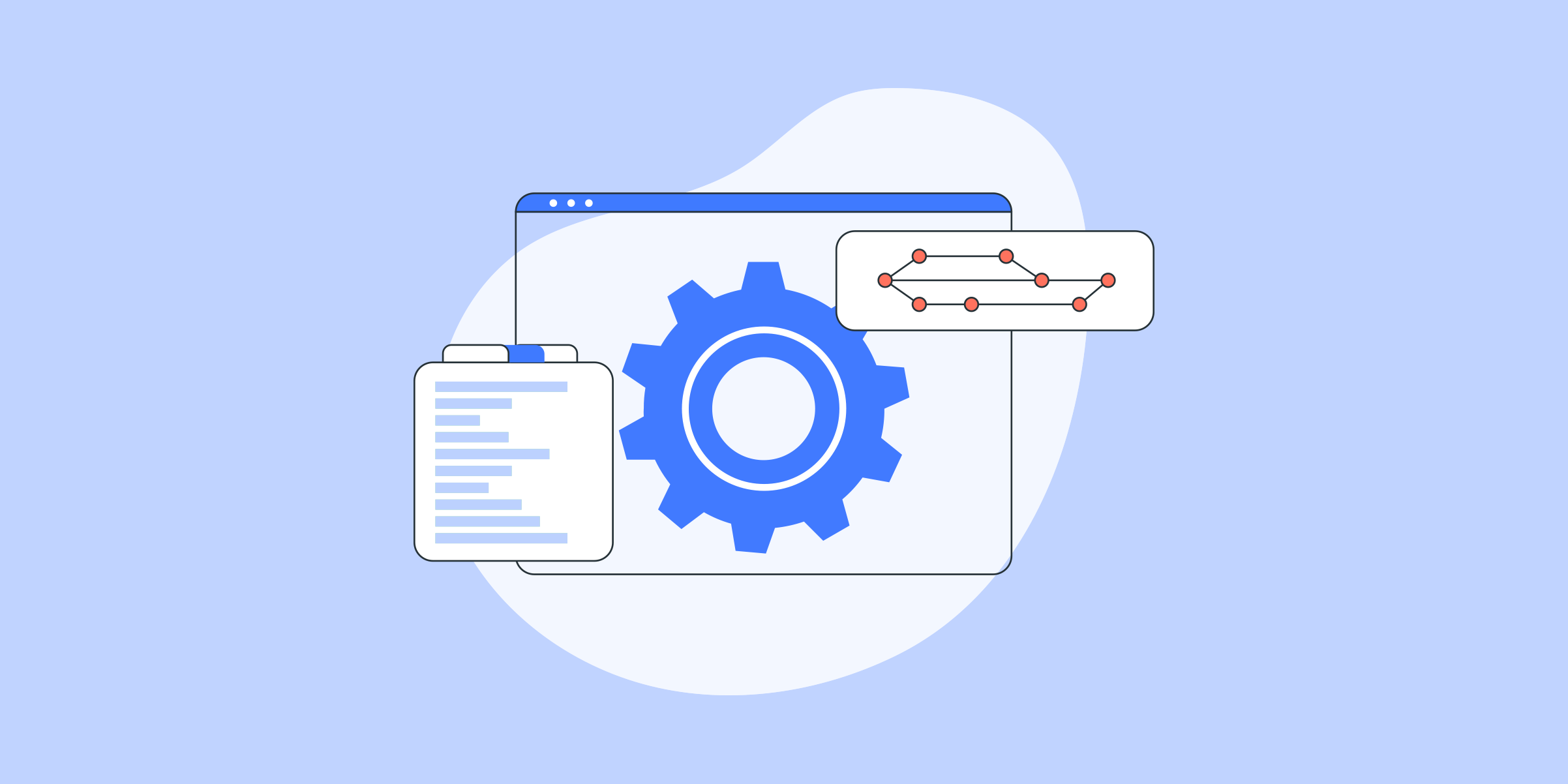Residential Proxies
Allowlisted 200M+ IPs from real ISP. Managed/obtained proxies via dashboard.

Proxies Services
Residential Proxies
Allowlisted 200M+ IPs from real ISP. Managed/obtained proxies via dashboard.
Residential (Socks5) Proxies
Over 200 million real IPs in 190+ locations,
Unlimited Residential Proxies
Unlimited use of IP and Traffic, AI Intelligent Rotating Residential Proxies
Static Residential proxies
Long-lasting dedicated proxy, non-rotating residential proxy
Dedicated Datacenter Proxies
Use stable, fast, and furious 700K+ datacenter IPs worldwide.
Mobile Proxies
Dive into a 10M+ ethically-sourced mobile lP pool with 160+ locations and 700+ ASNs.
Scrapers
Collection of public structured data from all websites
Proxies
Residential Proxies
Allowlisted 200M+ IPs from real ISP. Managed/obtained proxies via dashboard.
Starts from
$0.6/ GB
Residential (Socks5) Proxies
Over 200 million real IPs in 190+ locations,
Starts from
$0.03/ IP
Unlimited Residential Proxies
Unlimited use of IP and Traffic, AI Intelligent Rotating Residential Proxies
Starts from
$1816/ MONTH
Rotating ISP Proxies
ABCProxy's Rotating ISP Proxies guarantee long session time.
Starts from
$0.4/ GB
Static Residential proxies
Long-lasting dedicated proxy, non-rotating residential proxy
Starts from
$4.5/MONTH
Dedicated Datacenter Proxies
Use stable, fast, and furious 700K+ datacenter IPs worldwide.
Starts from
$4.5/MONTH
Mobile Proxies
Allowlisted 200M+ IPs from real ISP. Managed/obtained proxies via dashboard.
Starts from
$1.2/ GB
Scrapers
Web Unblocker
Simulate real user behavior to over-come anti-bot detection
Starts from
$1.2/GB
Serp API
Get real-time search engine data With SERP API
Starts from
$0.3/1K results
Scraping Browser
Scale scraping browsers with built-inunblocking and hosting
Starts from
$2.5/GB
Documentation
All features, parameters, and integration details, backed by code samples in every coding language.
TOOLS
Resources
Addons
ABCProxy Extension for Chrome
Free Chrome proxy manager extension that works with any proxy provider.
ABCProxy Extension for Firefox
Free Firefox proxy manager extension that works with any proxy provider.
Proxy Manager
Manage all proxies using APM interface
Proxy Checker
Free online proxy checker analyzing health, type, and country.
Proxies
AI Developmen
Acquire large-scale multimodal web data for machine learning
Sales & E-commerce
Collect pricing data on every product acrossthe web to get and maintain a competitive advantage
Threat Intelligence
Get real-time data and access multiple geo-locations around the world.
Copyright Infringement Monitoring
Find and gather all the evidence to stop copyright infringements.
Social Media for Marketing
Dominate your industry space on social media with smarter campaigns, anticipate the next big trends
Travel Fare Aggregation
Get real-time data and access multiple geo-locations around the world.
By Use Case
English
繁體中文
Русский
Indonesia
Português
Español
بالعربية

Title: IPv4 vs IPv6: The Evolution and Future of Internet Protocol
Description: This blog explores the differences between IPv4 and IPv6, their implications for the internet, and the importance of adopting IPv6 in the face of IPv4 exhaustion.
Introduction:
The internet has become an integral part of our daily lives, connecting billions of devices worldwide. Behind the scenes, the Internet Protocol (IP) plays a crucial role in facilitating this global network. The current version, IPv4, has been the backbone of the internet for over three decades. However, with the ever-increasing number of devices connected to the internet, IPv4's limitations have become evident. In this blog, we will examine the key differences between IPv4 and its successor, IPv6, and discuss the importance of transitioning to IPv6.
1. IPv4 Overview:
IPv4, introduced in 1983, uses a 32-bit addressing scheme, providing approximately 4.3 billion unique IP addresses. At the time of its development, this seemed like a vast number, but with the explosive growth of the internet, the limit has been reached. IPv4 addresses are written in decimal form, divided into four sections, such as 192.168.0.1. Unfortunately, the scarcity of available IPv4 addresses has led to the development of Network Address Translation (NAT), which allows multiple devices to share a single IP address.
2. IPv6: The Solution:
IPv6, designed to address the limitations of IPv4, uses a 128-bit addressing scheme. This massive address space provides approximately 3.4 x 10^38 unique IP addresses, ensuring that every device can have a unique identifier. IPv6 addresses are written in hexadecimal form, divided into eight sections, such as 2001:0db8:85a3:0000:0000:8a2e:0370:7334. Beyond the increased address space, IPv6 offers enhanced security, auto-configuration, and improved quality of service. Its adoption is crucial for the continued growth and development of the internet.
3. Key Differences and Implications:
a. Address Space: IPv4's limited address space has led to the exhaustion of available addresses, hindering the growth of the internet. IPv6's vast address space ensures that every device, including smartphones, IoT devices, and future technologies, can connect directly to the internet.
b. Auto-Configuration: IPv6 allows devices to configure themselves automatically, simplifying the network setup process. This feature is particularly useful in large-scale deployments and eliminates the need for manual configuration, which is common in IPv4 networks.
c. Security: IPv6 incorporates built-in security features, such as IPsec, which provide authentication and encryption at the IP level. While security measures can be implemented in IPv4, they are not mandatory, making IPv6 inherently more secure.
d. Quality of Service (QoS): IPv6 includes QoS capabilities, enabling the prioritization of specific types of traffic. This ensures a more reliable and efficient internet experience, particularly for real-time applications such as voice and video communication.
4. IPv6 Adoption Challenges:
Despite the clear advantages of IPv6, its adoption has been relatively slow. Some of the challenges include:
a. Legacy Systems: Many existing systems and devices still rely on IPv4 and lack native IPv6 support. Upgrading these systems requires time, resources, and coordination, which can be a barrier to adoption.
b. Lack of Awareness: A significant number of internet users are unaware of the need to transition to IPv6 or the benefits it offers. Raising awareness and educating users about IPv6 is crucial for its widespread adoption.
c. Compatibility: IPv6 and IPv4 are not directly compatible, requiring the use of transition mechanisms such as dual-stack, tunneling, and translation. Implementing these mechanisms can add complexity to networks, potentially slowing adoption.
5. The Importance of IPv6 Adoption:
a. Addressing the IPv4 Exhaustion: The adoption of IPv6 is crucial to ensure the continued growth and development of the internet. With IPv4 addresses becoming scarcer, adopting IPv6 is necessary to connect the increasing number of devices worldwide.
b. Future-Proofing: IPv6 provides a long-term solution that can accommodate the exponentially growing number of devices and emerging technologies. Embracing IPv6 ensures that the internet is prepared for the future.
Conclusion:
IPv6 represents a necessary evolution in internet protocol, addressing the challenges posed by IPv4's limitations. The transition to IPv6 is not just a technical upgrade but a strategic move to secure the future of the internet. As IPv4 addresses become increasingly scarce, it is essential for organizations, internet service providers, and users to embrace IPv6. By doing so, we can avoid potential connectivity issues, ensure continued growth, and unlock the full potential of the internet.
Featured Posts
Popular Products
Residential Proxies
Allowlisted 200M+ IPs from real ISP. Managed/obtained proxies via dashboard.
Residential (Socks5) Proxies
Over 200 million real IPs in 190+ locations,
Unlimited Residential Proxies
Use stable, fast, and furious 700K+ datacenter IPs worldwide.
Rotating ISP Proxies
ABCProxy's Rotating ISP Proxies guarantee long session time.
Residential (Socks5) Proxies
Long-lasting dedicated proxy, non-rotating residential proxy
Dedicated Datacenter Proxies
Use stable, fast, and furious 700K+ datacenter IPs worldwide.
Web Unblocker
View content as a real user with the help of ABC proxy's dynamic fingerprinting technology.
Related articles

Unlocking Hidden Gems: Phone Number Scraping on Craigslist Revealed
Looking to scrape Craigslist for phone numbers? Learn how to efficiently extract contact information from Craigslist listings with this comprehensive guide. Maximize your outreach and save time by accessing phone numbers directly through web scraping techniques. Get started today!

The Ultimate Web Scraping Language in 2025: Unveiling the Best Choice
Looking for the best coding language for web scraping in 2025? Discover the ultimate tool for efficient data extraction and analysis. Explore the top choice for web scraping success!

Exploring Website API Calls in Chrome with Python: Ultimate Guide
Learn how to view API calls made by websites in Chrome using Python. Discover a step-by-step guide on monitoring and analyzing website communication for enhanced understanding. Explore the world of web development and data tracking.